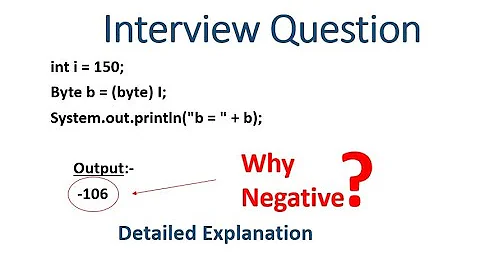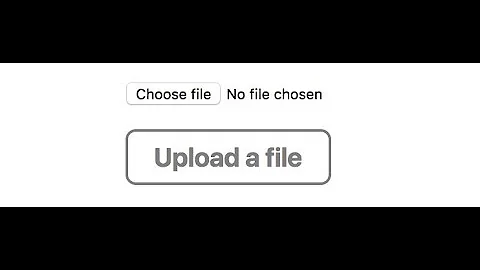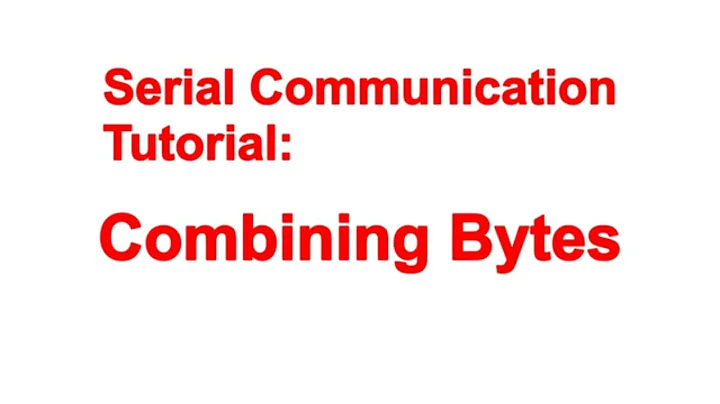Converting 2 bytes to Short in C#
Solution 1
If you reverse the values in the BitConverter call, you should get the expected result:
int actualPort = BitConverter.ToUInt16(new byte[2] {(byte)port2 , (byte)port1 }, 0);
On a little-endian architecture, the low order byte needs to be second in the array. And as lasseespeholt points out in the comments, you would need to reverse the order on a big-endian architecture. That could be checked with the BitConverter.IsLittleEndian property. Or it might be a better solution overall to use IPAddress.HostToNetworkOrder (convert the value first and then call that method to put the bytes in the correct order regardless of the endianness).
Solution 2
BitConverter is doing the right thing, you just have low-byte and high-byte mixed up - you can verify using a bitshift manually:
byte port1 = 105;
byte port2 = 135;
ushort value = BitConverter.ToUInt16(new byte[2] { (byte)port1, (byte)port2 }, 0);
ushort value2 = (ushort)(port1 + (port2 << 8)); //same output
Solution 3
To work on both little and big endian architectures, you must do something like:
if (BitConverter.IsLittleEndian)
actualPort = BitConverter.ToUInt16(new byte[2] {(byte)port2 , (byte)port1 }, 0);
else
actualPort = BitConverter.ToUInt16(new byte[2] {(byte)port1 , (byte)port2 }, 0);
Related videos on Youtube
Rafael Ibasco
Updated on July 09, 2022Comments
-
 Rafael Ibasco 5 months
Rafael Ibasco 5 monthsI'm trying to convert two bytes into an unsigned short so I can retrieve the actual server port value. I'm basing it off from this protocol specification under Reply Format. I tried using BitConverter.ToUint16() for this, but the problem is, it doesn't seem to throw the expected value. See below for a sample implementation:
int bytesRead = 0; while (bytesRead < ms.Length) { int first = ms.ReadByte() & 0xFF; int second = ms.ReadByte() & 0xFF; int third = ms.ReadByte() & 0xFF; int fourth = ms.ReadByte() & 0xFF; int port1 = ms.ReadByte(); int port2 = ms.ReadByte(); int actualPort = BitConverter.ToUInt16(new byte[2] {(byte)port1 , (byte)port2 }, 0); string ip = String.Format("{0}.{1}.{2}.{3}:{4}-{5} = {6}", first, second, third, fourth, port1, port2, actualPort); Debug.WriteLine(ip); bytesRead += 6; }Given one sample data, let's say for the two byte values, I have 105 & 135, the expected port value after conversion should be 27015, but instead I get a value of 34665 using BitConverter.
Am I doing it the wrong way?
-
 Lasse Espeholt over 11 yearsAre you sure this will work if the application is run on a different architecture?
Lasse Espeholt over 11 yearsAre you sure this will work if the application is run on a different architecture? -
 Mark Wilkins over 11 years@lasseespeholt: That's a good point. It probably does need a check using IsLittleEndian. For a big-endian architecture, the order would need to be as given in the OP.
Mark Wilkins over 11 years@lasseespeholt: That's a good point. It probably does need a check using IsLittleEndian. For a big-endian architecture, the order would need to be as given in the OP. -
 Lasse Espeholt over 11 years+1 for the "manual" approach. In my opinion
Lasse Espeholt over 11 years+1 for the "manual" approach. In my opinionBitConverterdoes way to many checks and an endian check which can break the code. -
 shelbypereira almost 3 yearsfrom your solution: ushort value2 = (ushort)(port1 + (port2 << 8)); //same output this is the way to go, in most cases we need this type of conversion for a large volume of bytes and speed is likely to be an issue. I am currently using this in imaging applications. Overhead of creating the array and using bitconverter can be huge.
shelbypereira almost 3 yearsfrom your solution: ushort value2 = (ushort)(port1 + (port2 << 8)); //same output this is the way to go, in most cases we need this type of conversion for a large volume of bytes and speed is likely to be an issue. I am currently using this in imaging applications. Overhead of creating the array and using bitconverter can be huge. -
 shelbypereira almost 3 yearssolution from @BrokenGlass ushort value2 = (ushort)(port1 + (port2 << 8)); should be preferred in speed critical situations as bitconverter can and allocating the extra array can be slow.
shelbypereira almost 3 yearssolution from @BrokenGlass ushort value2 = (ushort)(port1 + (port2 << 8)); should be preferred in speed critical situations as bitconverter can and allocating the extra array can be slow.
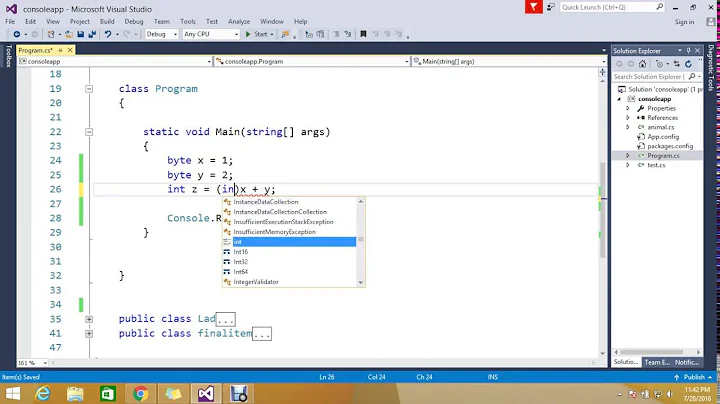
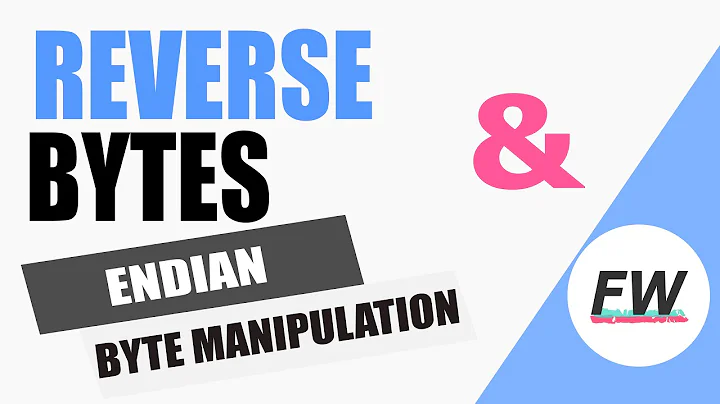
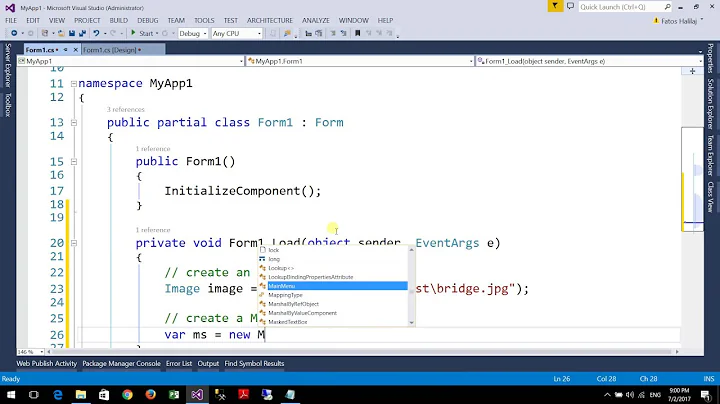

![HOW TO: Convert file to Byte [] and base64 C#](vi/my9GoPhNEWA/hq720_sqp--oaymwEcCNAFEJQDSFXyq4qpAw4IARUAAIhCGAFwAcABBg---rs-AOn4CLDd4rk3MShMfEY5htfRUYxbmkFn1g.jpg)
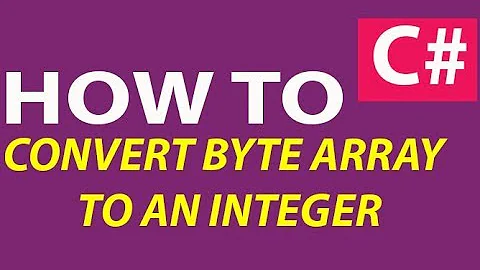
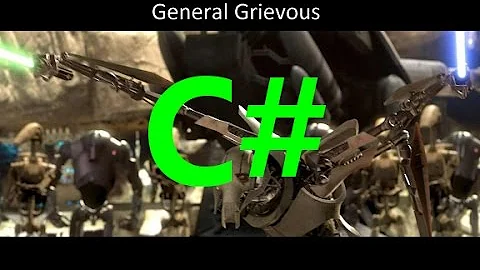
![HOW TO: Create file from Byte [] and Base64 C#](vi/q2BvsP53-90/hq720_sqp--oaymwEcCNAFEJQDSFXyq4qpAw4IARUAAIhCGAFwAcABBg---rs-AOn4CLA6NXc_K2diZWvoP0yb1vgLYa04Vg.jpg)
